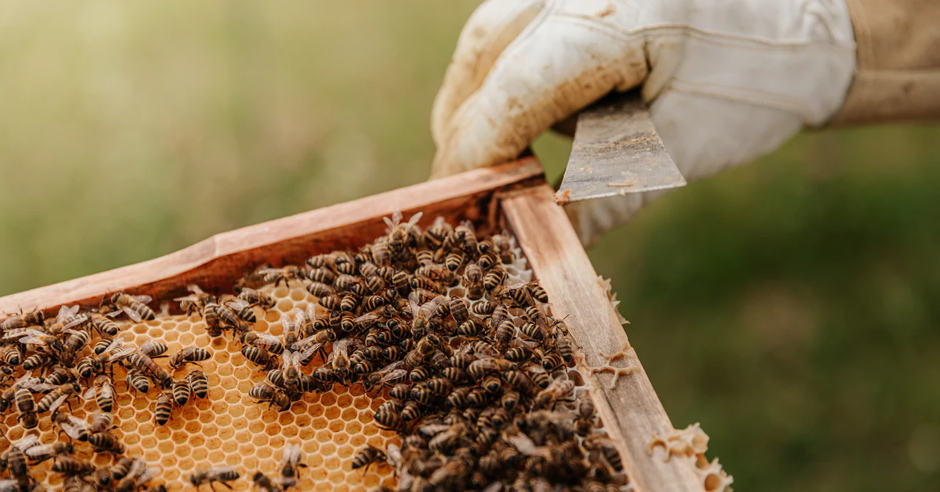
To paraphrase Joshua Fields Millburn “Passion isn’t followed, it’s cultivated.”
Wow. I never thought about it like that before. I always considered passion to be all-consuming. Something that I just HAVE to do, forsaking all else. But in his book, Everything That Remains, Millburn suggests that passion is a choice. We choose to cultivate our craft. A passion doesn’t exist until we have attained a certain level of mastery.
At first, I felt a little appalled. After all, I’ve spent my life trying hobby after hobby attempting to find a passion. Like a freight train, I barreled full speed into countless new ventures.
I learned musical instruments and wrote songs when music was my “passion.” I shaved time off my personal bests when running was my “passion.” I climbed the corporate ladder when my career was my “passion.” I’ve dabbled in Theatre, Dance, Biking, Dog Training, Writing, CrossFit, Sewing, Photography, Rock Climbing, Painting, Scrapbooking, Archery, Yoga …all in the name of trying to find my passion. The flame would flare and then it would inevitably dwindle until it was barely a flicker and burn out.
So who am I without a singular passion to define me?
I imagined when I found my true passion I would easily find time for it daily. It would be right. It would be me. There would be no choice.
Choice.
If passion is cultivated rather than followed doesn’t that mean I have a choice?
That is oddly freeing. My passion doesn’t have to enslave me. Instead I can wake up each day and choose to pursue. If one day it no longer fits into my life, I can downsize it without guilt because it is not the definition of me but merely one facet of my vast and unique personality.
My passion does not drive me but rather I drive IT by choosing to work on it even in times that I am not feeling particularly inspired. The daily grind makes the passion – not the other way around.
I am in charge of my own life, my own priorities and my own passion.
Steps to Cultivating Passion
1. Examine Your Priorities
Consider how you spend your time every day. The items you spend the most time on are your priorities, whether you like that or not.
Are they in line with who you want to be? Or do you find yourself turning to passive activities like watching television and scrolling social media? Do you find yourself lamenting that you don’t get things accomplished or never have time to grow in your interests?
It is time to examine your priorities. Look at how you actually spend your days and see what habits you can address to free up time.
A while ago, I found that I had no time to read. I paid attention to how I spent my time, and realized I was rewatching Criminal Minds for the umpteenth time when instead I could have been reading. In our new home there is no television on our main living level (only in our basement) so I have to be intentional about my TV watching. I no longer put a show I’ve seen many times on as “background noise” only to find myself still watching hours later.
2. Seek Out Education
That activity you have always wanted to try? Research it. Look up reputable Internet sites or check out books at the local library on the subject.
Do NOT go out and buy all of the equipment you think you need for this potential passion (as I have so often done, using shopping and “needing” all of these things as a mask for my insecurities about trying something new). Take the time to learn and find some hands-on opportunities if possible.
As a new beekeeper, I worked with a mentor on his hives and used borrowed safety equipment for a year before buying anything of my own. I still find myself making do with whatever I have on hand. Sure, there may be gadgets out there that would be more convenient but I am finding that being a “minimalist beekeeper” definitely has its advantages. Mostly to my pocketbook.
3. Establish Discipline
Achievement at any level takes work. After establishing priorities to free up time and seeking out education within your chosen field, you need to put in the time.
Maybe as a writer that means waking up early to write for an hour to start your day. Or as a runner, it could mean packing running shoes for a lunch break workout. As a beekeeper seeking a master certification, for me, discipline means making time for weekly hive inspections and studying exam material several days a week.
I work a 9-to-5 job and run a small hobby farm, so trust me when I say I understand the struggles in “finding time.” For me to actively pursue the next level in the master series, it means cutting out excess Netflix and social media. It also means streamlining household and animal routines to efficiently keep everything tidy and everybody fed.
With discipline also needs to come a little bit of grace. Some days the combined effort of my 9-to-5 job and farm life is overwhelming and I am only able to give the bare minimum of reading one article in a scientific journal. But I balance that with other evenings where I am able to finish multiple chapters and discussion questions in my Honey Bee Biology book.
Discipline is simply showing up. Continuing to sow the seed of effort so you can reap the satisfaction of living your passion.
About the Author: Rebecca is a beekeeper and animal rescuer building a cozy simple life on 10 acres in the woods with her husband.